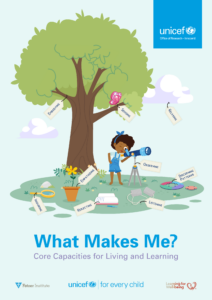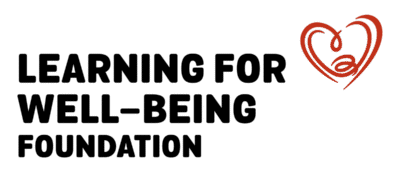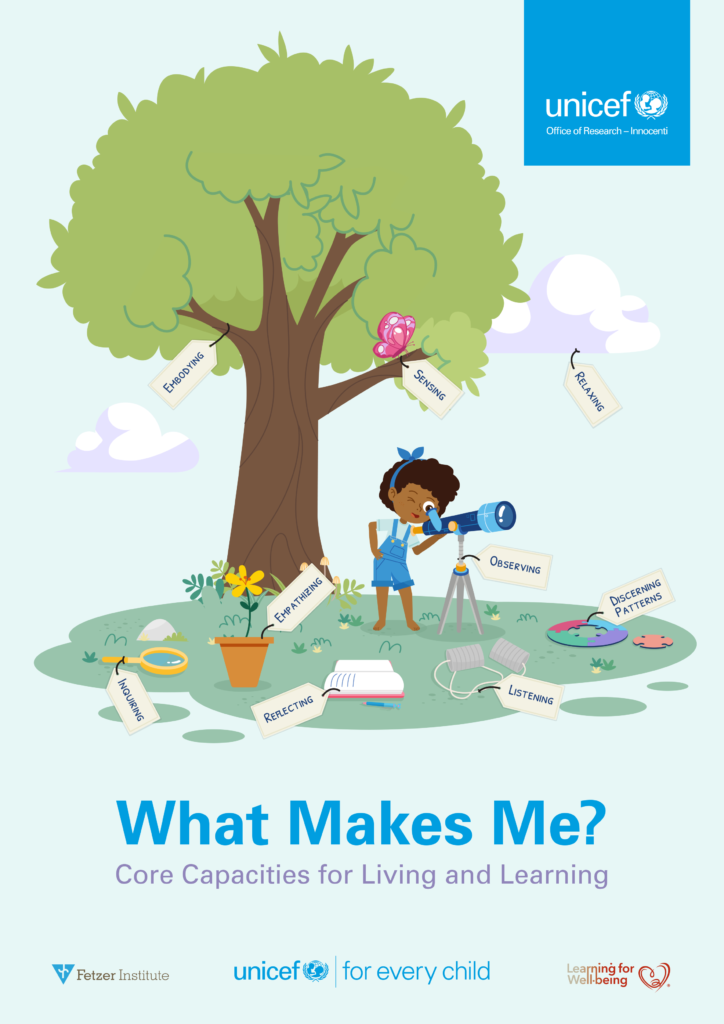 On Thursday the 9th of December on a virtual Policy Panel Discussion at the WISE Summit,
On Thursday the 9th of December on a virtual Policy Panel Discussion at the WISE Summit,
UNICEF Office of Research – Innocenti and The Fetzer institute and The Learning for Well-being Fundation, released What Makes Me, a report built on Core Capacities for Living and Learning. This report, reveals nine core capacities and underscores the importance of noticing and nourishing these capacities from birth through adulthood.
Core capacities represent fundamental human skills expressed differently by each individual to varying degrees. These skills’ unique nature and development is precious; education systems should promote, support and protect them.
“These capacities are windows to our unique potential; they allow us to recognize our vital differences and those of others so that we can build on our natural complementarity as we learn and live.
We dream of a world where, by embodying and embracing core capacities in a holistic way, parents, teachers, doctors, nurses, social workers —all humanity, really— will fulfill their own unique potential and enable the same for those who they serve.”
Daniel Kropf, Founder and Chair of The Learning for Well-being Foundation
Recognizing the negative impact of COVID-19 on today’s children, the report makes the case that these core capacities are even more critical in helping children cope, solve problems, and overcome stress, as well as develop the skills needed to learn and rebuild their societies and economies when they reach adulthood.
Key findings from the report include:
- Children come equipped with capacities that support lifelong learning and development. These capacities need to be promoted and protected.
- There are critical windows of opportunity to develop these capacities in early childhood and adolescence. Policy, Educational and Parental practice should pay close attention to these periods.
- These capacities are often overlooked and yet they are foundational (the basis) for developing more complex social-emotional and academic competences.
- These capacities support one another, with some being “gateway” capacities that support many others.
- Children’s capacities are interconnected with the capacities of adults, who play a modelling role and influence children’s chances of developing such capacities themselves.
- An evaluation of an eight-week mindfulness training programme for children aged 7-9 in England found significant gains in children’s emotional well-being and metacognition skills.
- Children’s levels of empathy significantly affect their social functioning, such as prosocial behaviours, bullying, and quality of relationships with parents and peers.
- Listening improves early reading and later reading comprehension, learning outcomes and concentration. Furthermore, listening is associated with various mental health outcomes, including coping, self-esteem, and happiness and relaxing – particularly in the ‘listening to music’ literature.
- Reflecting improves working memory, cognition and generosity.
We invite you to visit the report microsite and download the full report: http://www.unicef-irc.org/what-makes-me
Policy panel discussion: https://youtu.be/BDgG0QzztX4


